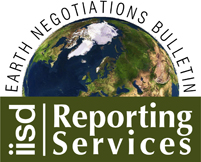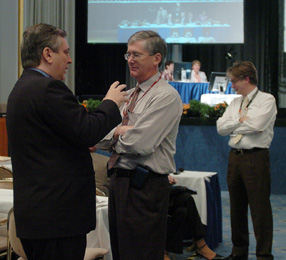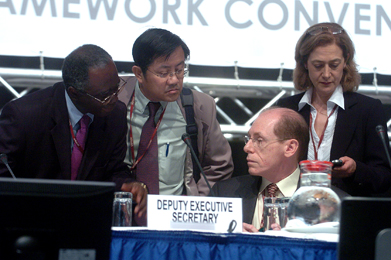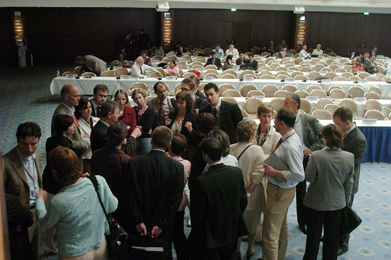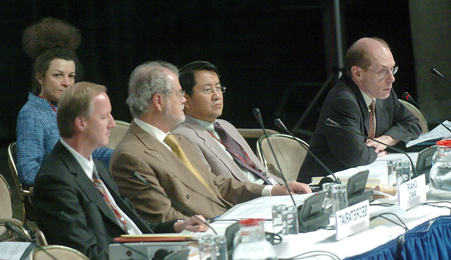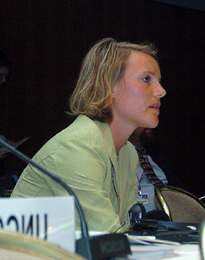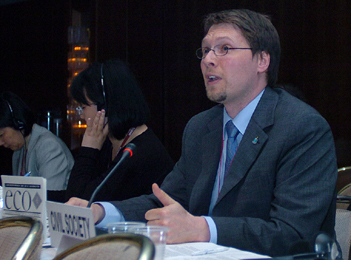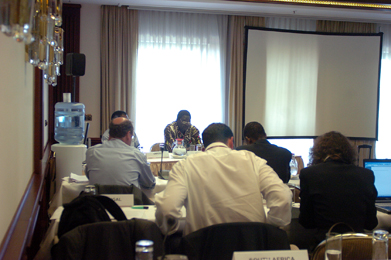|

 |
Twenty-Fourth sessions of the
Subsidiary Body for Scientific and Technological Advice (SBSTA)
and the Subsidiary Body for Implementation (SBI) of the UNFCCC
and First session of the Ad Hoc Working Group on Further
Commitments for Annex I Parties under the Kyoto Protocol (AWG)
and related meetings
|
 |
|
|
Highlights for
Wednesday, 17 May 2006

|
| |
The first session of the Ad
Hoc Working Group (AWG) on Further Commitments for Annex I
Parties under the Kyoto Protocol began on Wednesday afternoon, 17
May. It will continue to be held in parallel with the 24th
sessions of the UNFCCC Subsidiary Bodies (SB 24) until 25 May (SB 24
is scheduled for 18-26 May). On the AWG’s first day, parties
elected the bureau and provided initial views on the AWG’s future work programme.
COP/MOP 1 Vice
President Enele Sopoaga (Tuvalu) opened the meeting and
welcomed delegates on behalf of COP/MOP 1 President Rona Ambrose (Canada).
He noted that consultations had been held on candidates for the AWG
bureau, and proposed Michael Zammit Cutajar (
Malta
) as Chair and Luiz
Alberto Figueiredo Machado (Brazil) as Vice-Chair. Parties elected both candidates by acclamation.
More information. |
|
| Above
photos L-R: Luiz Alberto Figueiredo Macahdo
(Brazil) in a discussion with Keith Christie (Canada);
Halldor Thorgeirsson, UNFCCC Secretariat (left), and
Tibor Faragó (Hungary) in the corridors. |
| Above
photos: Richard Kinley, Officer-in-Charge,
UNFCCC Secretariat; EU delegates in a coordination
huddle. |
| Above
photos L-R: Richard Kinley, Officer-in-Charge
of the UNFCCC Secretariat, emphasized the potential of
market forces and the need for long-term and cohesive
policies to fully unleash their power; AWG Chair Michael
Zammit Cutajar thanked delegates for their
confidence in him, noting that the intensity of
negotiations on the AWG bureau confirms the importance
of the AWG's work. |
| |
General
Statements:
|
|
|
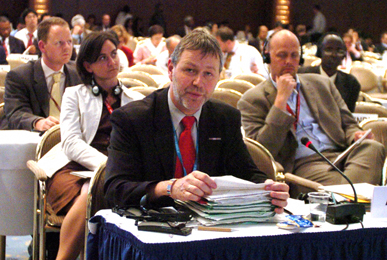
|
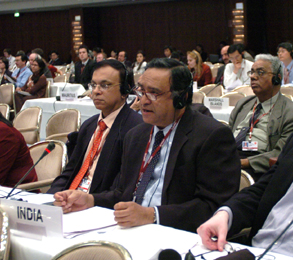
|
|
| Above
photos L-R: Helmut Hojesky
(EU) said commitments must be clearly defined and
fair; Chandrashekkar Dasgupta (India)
stated that Annex I parties should take on more
ambitious targets in a second commitment period. |
|
|
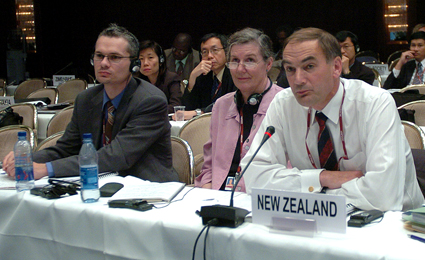
|
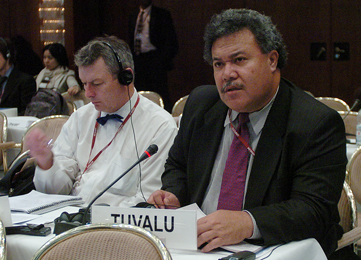
|
|
| Above
photos L-R: Adrian Macey (New Zealand)
cited convergence with other climate change
initiatives, including the UNFCCC dialogue. COP/MOP 1 Vice
President Enele Sopoaga (Tuvalu),
speaking for AOSIS, stressed the need for significant
contributions from all parties. |
|
|
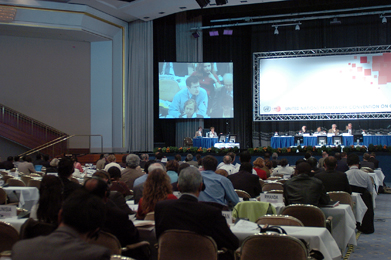
|
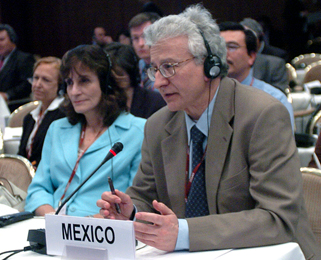
|
| |



